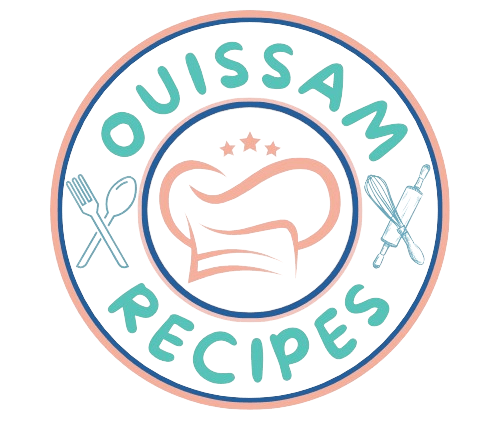Introduction: The Comforting Classic French Toast Recipe
Few dishes evoke the comforting nostalgia of home like a perfectly made French toast recipe. This golden, buttery delight has been gracing breakfast tables around the world for centuries. Whether it’s a quick weekday indulgence or the star of a leisurely weekend brunch, French toast brings joy to every bite. With its crispy exterior and custard-like interior, French toast is the ultimate comfort food that offers endless possibilities for toppings and flavor variations. In this article, we’ll explore the history of the French toast recipe, its timeless appeal, and how to make the perfect batch every time.
The Origins of French Toast: A Dish with a Rich History
- Key Points:
- The origins of French toast date back to ancient times, where it was a practical dish made from stale bread.
- This dish is known by various names around the world: “French Toast” in the United States, “Eggy Bread” in the UK, and “Arme Ritter” in Germany.
- The term “French toast” gained popularity in America during the 18th century.
- It was once a frugal recipe, now transformed into a beloved breakfast dish.
Why French Toast is Loved by Everyone: A Perfect Blend of Sweet and Savory
- Key Points:
- The irresistible contrast of a crispy exterior and a soft, custard-like interior.
- Versatility in toppings: from powdered sugar and syrup to fruit, whipped cream, and even savory options like bacon and cheese.
- Ideal for customization, catering to dietary preferences and creative variations (e.g., gluten-free, vegan).
- Offers endless flavor combinations, such as using brioche or challah bread for extra indulgence.
French Toast for Every Occasion: Beyond Breakfast
- Key Points:
- French toast can be served as a sweet treat for breakfast, brunch, or as a comforting dessert.
- Savory variations: Smoked salmon or avocado for brunch, or paired with ice cream and caramel for a decadent dessert.
- A crowd-pleaser for entertaining guests with minimal effort—easy to prepare for a large group or family gathering.
- French toast casserole: Make-ahead option for parties and gatherings.
The Simplicity of Making French Toast: A Recipe for Everyone
- Key Points:
- Easy to prepare even for beginners.
- Basic ingredients like eggs, bread, milk, and sugar make for a quick and satisfying meal.
- The process of dipping and frying bread allows for creative variations.
- French toast is a dish that fosters memories—kids learning to cook with parents, creating experiences in the kitchen.
French Toast Recipe: Step-by-Step Preparation for Perfect Golden Toast
Preparation Time
- Preparation: 10 minutes
- Cooking: 15 minutes
Ingredients
| For the Toast | Quantity |
|---|---|
| Bread (preferably brioche, baguette, or thick white bread) | 4 large slices |
| Eggs | 2 large |
| Whole milk or heavy cream | ½ cup |
| Granulated sugar | 1 tablespoon |
| Vanilla extract | 1 teaspoon |
| Ground cinnamon (optional) | ½ teaspoon |
| Salt | Pinch |
| Unsalted butter (for frying) | 2 tablespoons |
| For Garnish (Optional) | Quantity |
|---|---|
| Powdered sugar | To taste |
| Fresh fruit (strawberries, blueberries, bananas) | As desired |
| Whipped cream | As desired |
| Chocolate or caramel drizzle | As desired |
| Vanilla ice cream | As desired |
Preparation Steps
- Prepare the Egg Mixture
In a medium-sized mixing bowl, whisk together eggs, milk (or cream), sugar, vanilla extract, cinnamon, and a pinch of salt until combined and slightly frothy. - Preheat the Pan
Place a large non-stick skillet or griddle on medium heat to warm up. Add a small piece of butter to coat the pan evenly, allowing it to melt. - Soak the Bread
Dip each slice of bread into the egg mixture, allowing it to soak for a few seconds on each side, ensuring it absorbs enough custard without becoming soggy. Avoid over-soaking to maintain a good structure. - Cook the French Toast
Carefully add the soaked bread slices to the hot skillet. Cook for 2-3 minutes on each side or until the bread turns golden brown and crisp. Modify the heat if needed to prevent burning. - Repeat with Remaining Bread
Add more butter as needed to the skillet and repeat the process with the remaining bread slices. - Serve Warm
Place the cooked French toast on plates and top with your favorite garnishes—powdered sugar, fresh fruit, whipped cream, or a drizzle of chocolate or caramel sauce.
H3: Nutritional Information for French Toast (per serving)
| Nutrient | Amount per Serving |
|---|---|
| Calories | 250 |
| Protein | 6g |
| Carbohydrates | 30g |
| Fat | 12g |
| Fiber | 1g |
| Sugars | 7g |
| Sodium | 200mg |
Tips for Perfect French Toast Every Time
- Choose the Right Bread: Use thick, hearty bread like brioche, challah, or even a French baguette for the best texture and flavor.
- Let the Bread Soak, Not Soften: Ensure the bread is soaked, but not overly wet, to avoid sogginess while frying.
- Adjust the Heat: Make sure to cook at medium heat for even browning, as high heat may burn the outside before the inside is fully cooked.
- Add Flavored Variations: Spice things up by adding nutmeg, cardamom, or almond extract to the egg mixture for an extra depth of flavor.
FAQs about French Toast
Q: Is it possible to prepare French toast in advance?
A: Yes, you can prepare French toast ahead of time and keep it warm in the oven, or even make a French toast casserole to bake the next day.
Q: What bread is best for French toast?
A: Thick, soft bread like brioche or challah is ideal. These types absorb the egg mixture well while holding their structure when fried.
Q: Can I make French toast without eggs?
A: Yes! For an egg-free version, use a mixture of plant-based milk (like almond or oat milk), cornstarch, and spices to create a custard-like base.
Q: How can I make French toast gluten-free?
A: Simply swap out regular bread for a gluten-free option, and you can still enjoy the same crispy, indulgent dish.
Conclusion: Savor the Golden Delight of French Toast
French toast isn’t just a dish; it’s a delightful experience. From its humble origins as a way to repurpose stale bread to its rise as a beloved global breakfast classic, French toast embodies comfort, creativity, and tradition. Its rich flavor and versatility make it the perfect dish for any occasion, whether served sweet, savory, or both. The beauty of French toast lies in its simplicity, yet its potential for customization allows it to become anything you want it to be. So, gather your ingredients, experiment with your favorite variations, and let this timeless dish bring warmth and joy to your next meal. Enjoy the golden delight that is French toast!

French Toast Recipe: A Comfort Breakfast
Equipment
- Non-stick skillet or griddle
- Mixing Bowl
- Whisk
- Spatula
- Plate for serving
Ingredients
- 4 large slices Bread (preferably brioche, baguette, or thick white bread)
- 2 large Eggs
- ½ cup Whole milk or heavy cream
- 1 tablespoon Granulated sugar
- 1 teaspoon Vanilla extract
- ½ teaspoon Ground cinnamon (optional)
- Salt Pinch
- 2 tablespoons Unsalted butter (for frying)
- Powdered sugar To taste
- Fresh fruit (strawberries, blueberries, bananas) As desired
- Whipped cream As desired
- Chocolate or caramel drizzle As desired
- Vanilla ice cream As desired
Instructions
- Preparation Steps: Whisk eggs, milk, sugar, vanilla, and cinnamon in a bowl.Dip thick slices of bread into the mixture, coating each side.Fry in a buttered skillet until golden brown and crispy.Serve warm with fresh fruit, powdered sugar, syrup, or whipped cream.

